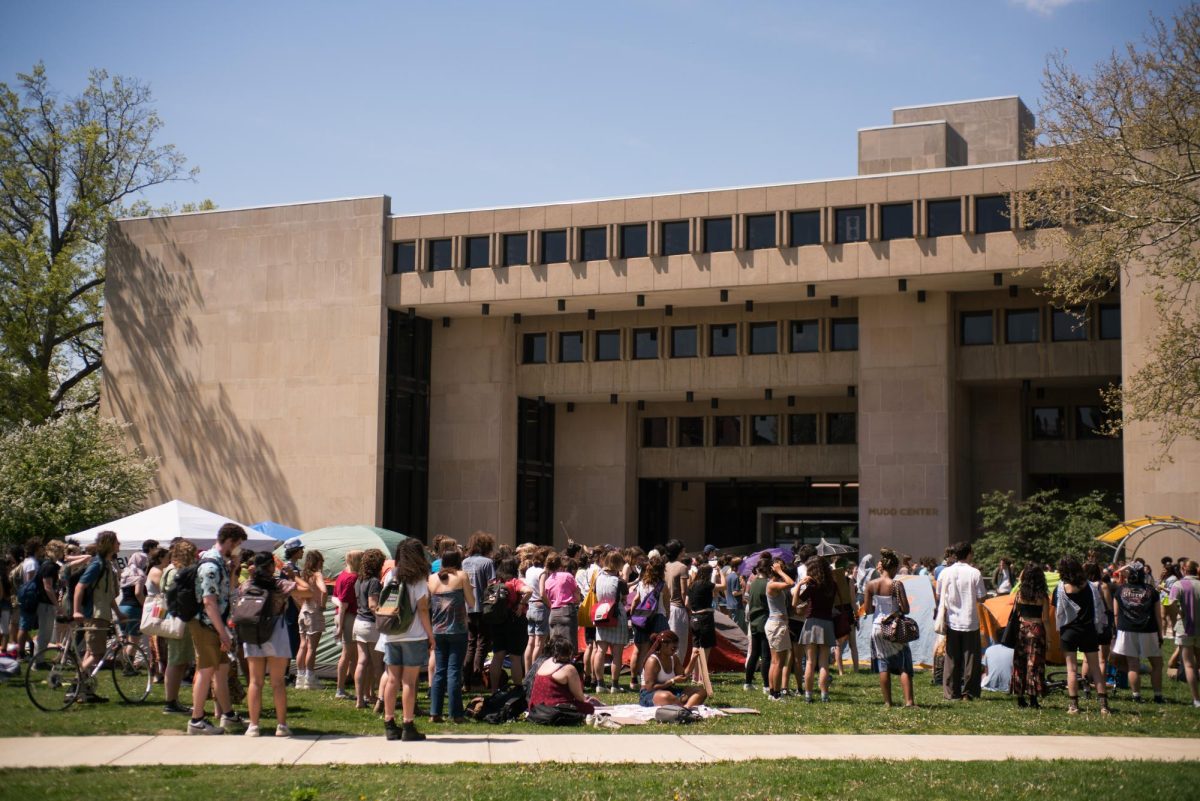While Oberlin offers several languages such as Arabic — which should be expanded — it does not offer Persian as a language option. This should change.
Persian is another interesting and important language in the Middle East and Central Asia. There are three main dialects of Persian: Farsi, the official Persian dialect and language of Iran; Dari, the official language of Afghanistan; and Tajik, the official language of Tajikistan. The most commonly spoken dialect of Persian is Farsi. Persian and its dialects are also spoken by large minority populations in Southwest Asia, such as in Bahrain, Oman, Yemen, Azerbaijan, and Pakistan.
Farsi is the official language of Iran, which is one of the largest and most important countries in the Middle East within the realm of politics, economics, and security.
Oberlin currently has an Arabic program that only offers beginner-level courses, which definitely should be expanded to the intermediate level and to private readings. Oberlin’s Middle East and North Africa Studies minor is also lacking and needs to be expanded. A part of that expansion should also include the addition of a Persian language program.
Including Persian would also further promote diversity, equity, and inclusion at Oberlin and encourage learning about the Middle East and Central Asia. It would add an opportunity to learn an important language and about a rich and diverse culture in Iran and Central Asia, as well as aid in Oberlin’s fulfillment of its featured commitment to provide a global education to its students through educating them about an underrepresented language and region of the world.
Having Persian as a language opportunity would be a major opportunity for students to further study the Middle East and Central Asia. It would also be an incredibly valuable opportunity for students who are going into international relations, politics, national security, and the military as career paths, as those fields are looking for speakers of both Persian and Arabic.
I studied Arabic for a year at Oberlin under Visiting Instructor of Arabic Mahmoud Meslat. However, due to a lack of opportunity to continue at Oberlin beyond the beginner level, I participated in an intensive program in Arabic at the University of Maryland, College Park. While participating in the intensive Arabic program, I saw that University of Maryland also has a Persian language program at the beginner, intermediate, and advanced level as it does with Arabic, in both summer intensive and regular language programs. These are both valuable opportunities for the University of Maryland students that Oberlin should seriously consider giving its students. There are several other colleges and universities that offer Persian language programs such as Princeton University; Georgetown University; University of California, Berkeley; The Ohio State University; University of Virginia; and many others. Oberlin should join the list of colleges that offer Persian as language opportunities and study programs.
Despite misconceptions, Persian is not in the same language family as Arabic. Arabic is a Semitic language, which is in the same family as Hebrew. Persian, on the other hand, is an Indo-European language, which makes it more closely related to European languages such as Romance and Germanic languages, the latter of which includes English.
Interestingly, the Persian word for thank you is Merci/Mersi — مرسی, and the word for no is Nah نه. These are examples of how Farsi is an Indo European language with similarities to languages and language families in Europe. This makes it easier for English speakers and those who speak European languages such as Spanish and French to learn Persian. While Persian is an Indo-European language, it does borrow some Arabic words, such as “hello” and “peace” being salam — سلام. This is due to the proximity and historical influences between Arab and Persian civilizations.
Iran, whose official language is Persian, is one of the largest in terms of landmass and has a population of over 88 million people. It has significant political, economic, and national security importance for the Middle East, the United States, and for the world. It has a long and rich history, such as with the history of the Persian Empire that goes back thousands of years, and relations with the rest of Islamic civilization and the Middle East — as well as with the United States.
Having valuable and interesting language programs such as Persian and more offerings in Arabic would also attract talented and diverse students to Oberlin, which would allow those programs — and the College as a whole — to flourish and be a diverse and inclusive place.
Given the importance of Iran and the other countries that speak Persian and the numerous opportunities in government, international relations, national security, military, and other careers that having knowledge of the Farsi language would offer, Oberlin College should seriously consider adding Persian as a language option and establish a Persian program within the MENA studies program along with Arabic.










